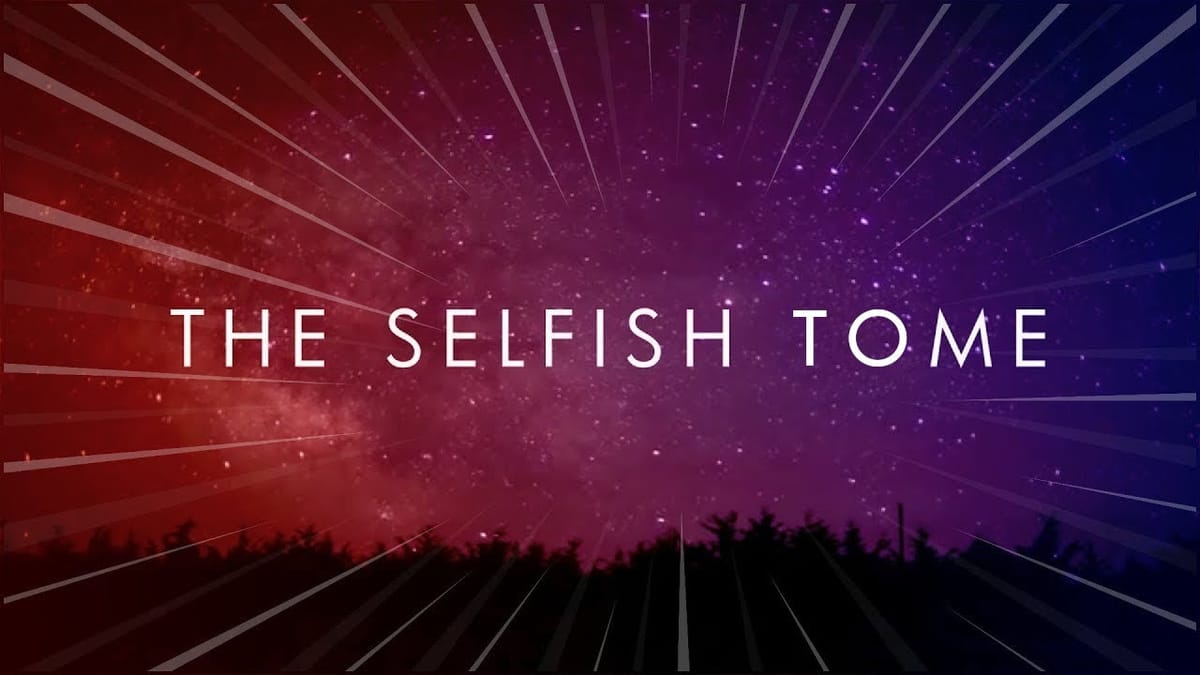How your data is creating a digital prison.

This article is based on a leaked internal video produced by Google. If you haven't seen it, you should watch it before you read this article:
Today's Panopticon is Tomorrow's Prison
Like it or not, we live in a digital panopticon. Every action we take online is logged and scrutinized.
Our seemingly ephemeral behaviors are the subject of scientific studies we unwittingly consent to through a frivolous tap of the “I Agree” button. When you install an app on your phone, you're subject to invasive surveillance by marketeers and big data companies alike.
This mobile game turns a profit by selling your location to unscrupulous third parties. Ultrasonic audio embedded in television commercials and retail outlets lets marketeers track your attention and manipulate you.
That’s what this is all about: manipulation. Social engineering.
The wildly self-inflated importance of those who’ve profited their way to owning our data and now, through their arrogance, seek to control us.
But there’s a problem with that. Let me explain...
Origins of the Meme

This is Richard Dawkins, the perpetrator of the first officially recognized meme.
His original theory proposed that, whilst devoid of any motive or will, memes could be metaphorically and pedagogically described as if they had such.
By this metaphor, memes are problematic. They have an uncanny ability to literally possess people as a means of self-interested propagation.
They don’t care who they harm, or how outrageous they might be—as long as they can survive.
Now, I’m not talking about image macros or Millhouse, per se, though they do serve to illustrate the lengths to which memes will go to preserve themselves.
What I’m talking about are the memes that are proffered by their acolytes as a lens through which to view the world.
Identity, bigotry, ideology, and dominance...
From birth until death, we’re surrounded by memes fighting for our attention.
Once a meme has your attention, it's easy to adopt it—our brains are meme machines, after all.
Our minds receive a rush of dopamine as we embrace and repeat the meme, and it becomes a game of chasing the high—much like gambling.
Ideas like:
- “Truth” Diets
- Political ideologies
- Internet subcultures
- Tribalism of any kind
- Gender and orientation
- Any extremist religious faith
They’re all different sides of the same meme gamble.
By their very nature, the most effective memes require you to make them a part of your identity.
It's the best way for them to guarantee their survival.
Let's use an example from my own life.
I grew up in an extremely conservative, religious household. Then, as a teenager, I called myself an Atheist (capital A) and adopted that entire (anti-)religious worldview.
They’re kinda the same thing; just different sides of the same identity coin.
A memetic distillation of complex human behaviors that, when embraced to their fullest, lead to a similar kind of slavishness to an idea. One that ultimately exists for its own, selfish sake.
Memes require complete devotion, they dispense with subtlety, and over time they trend towards the most extreme variations of themselves.
As they grow and propagate, the minds they possess act according to the most fundamental and clownish strains of the meme they adhere to.
Getting to the Point
Now you might be asking at this point, what’s any of this have to do with user data?
The problem we face on the Internet—whether it’s with social media or user-centered design—is this:
Human beings cannot be accurately represented by a like, or a share, or a radio button, or a retweet.
These are binary options that exist as an abstraction of human behavior. And while hashtags and analytics might be a quick and easy way for some to claim they have an accurate model of human behavior, what I’ve come to realize is that Google, Facebook, and their ilk are merely meme collectors.
They can index all they like. They can claim that their repository of analytics, and photos, and location data, and purchase history, and whatever else can tease out facts about mankind’s truest self.
But in my estimation, all they’ve ever been able to do is facilitate these memes, and expedite their transformation into ugly, extremist parodies of themselves.
The Fallacy of the Selfish Ledger
So when Google comes along and portrays itself as an altruistic record keeper, and diviner of truth (as they did in their Selfish Ledger), I have to scoff.
Truth without meaning is useless. A ledger of zeros and ones interpreted through an artificial intelligence is as useful as the entrails of a chicken interpreted through an artificial intelligence.
Their greed, their gluttony for our data, is driven by—you guessed it—a meme.
That being control, dominance.
And whether their ends are altruistic or not, their goal is to sequence human behavior as if it were some epigenetic tome. But there’s no objectivity to the data they sequester about us.
As their catalog of behavior grows and their predictions of user choice get more ‘accurate,’ you have to stop and ask yourself…
Where does the prediction of a choice end and the manipulation of the user begin?
How could anyone think their vision of a Selfish Ledger does anything but enslave our future generations to the unconscious mechanizations of today’s memes?
Imprisoning our children into a pigeon-hole, and typecasting individuals into an ever-louder and more extreme caricature of viral thoughts.
What they’ve built today is nothing more than the ultimate meme machine that does nothing but divide us into little groups of ostentatious, memetic behaviors.
And if their goal is to actually help future generations, the best thing they could do is let the memes die and just forget.
Forget our data and forget their ambition to control us all.
